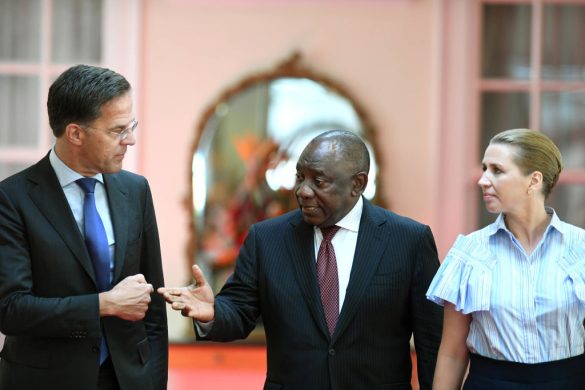Den britiske ambassadør fornærmede præsidenten og blev smidt ud – og så standsede Storbritanniens Danida bistanden til det fattige land
BLANTYRE, 3 June 2011 (IRIN): After several years of fragile gains, Malawi’s healthcare sector is facing major setbacks.
This is a consequence of a decision by its largest international donor, the UK’s Department for International Development (DFID), to freeze its aid to the impoverished Southern african nation.
The UK provided about 122 million US dollar annually to Malawi, of which 49 million went to funding Malawi’s public health sector, but DFID made its final aid disbursement (udbetalinger) in March and has decided not to renew a six-year funding commitment which ends in June.
– We have already started feeling the pinch, said Martha Kwataine, a policy analyst with the Malawi Health Equity Network, adding: – There is going to be a regression (tilbagegang) in the progress we have made with DFID in improving health services in the country.
The UK’s decision not to renew its aid to Malawi followed the expulsion of its top envoy Fergus Cochrane-Dyet by the Malawian government for allegedly writing in a leaked memo that Malawian President Bingu wa Mutharika was “ever more autocratic and intolerant of criticism”.
Drug shortages
Malawi’s health sector is nearly entirely donor-funded with foreign aid covering about 90 percent of the costs of all medicines.
– The cuts will really make a difference because we don’t have the means to buy most drugs ourselves,” Kwataine told IRIN.
However, drug shortages and stock-outs were a problem even before DFID’s funding freeze.
Anti-retrovirals (ARVs = livsforlængende medicin mod aids), for example, are provided entirely by the Global Fund to Fight AIDS, Tuberculosis and Malaria but their distribution to HIV patients across the country is the responsibility of the Ministry of Health’s HIV Unit. Often, the drugs are not available where they are needed.
At a health clinic in southern Malawi run by Dignitas, a Canadian NGO which supports the development of local health care, Dr Belete Assefa has been dealing with inconsistent supplies of ARVs for the past two years.
– It is a problem of the supply chain. It might be available in the country, but it is the way they are distributed. There might be a lot of drugs at one health centre and no drugs at another, he said.
Cuts to the health budget resulting from the withdrawal of UK aid are likely to deepen inefficiencies in the distribution of ARVs.
In Blantyre’s suburb of Ndirande, one of the poorest urban areas in Malawi, ARV clinician Eddie Manda said drug shortages had already worsened in recent weeks.
– Normally when we request ARVs, we are supplied within two or three days. Now it has been three weeks, he said.
Demoralized doctors
Læs videre på http://www.irinnews.org/Report.aspx?ReportID=92877














